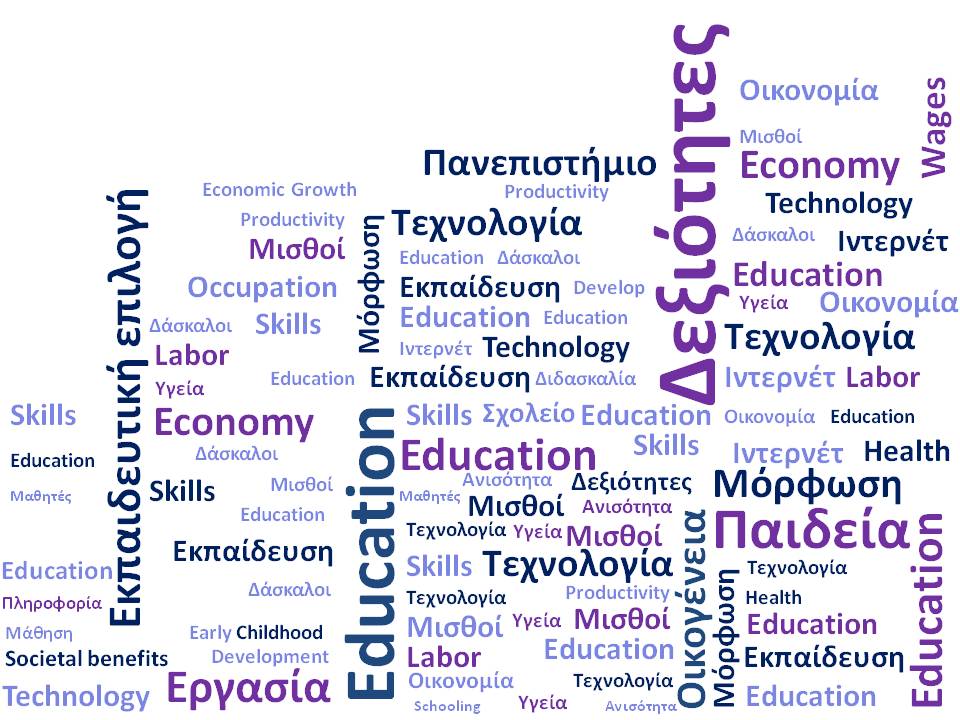Economics of Education

Course ID:
Semester: 7th
Year of Study:
Category: Economics Elective
For Erasmus Students: Όχι
Learning Outcomes
Upon successful completion of the course the student will be able to:
- Understand the process by which individuals shape their education choices through the interaction of the supply and demand forces that affect their choices.
- Understand and identify the differences between human capital and signaling theory.
- Understand within the framework of the economic analysis the shaping of educational outcomes.
- Understand the methods used in economic science for evaluating educational policies and the implications of the various political and economic institutional factors in the educational outcome.
- Separate analytical issues between those relating to the economic analysis of education from the purely pedagogical content of the educational process.
- Collect and organize the relevant empirical data needed to estimate the returns to schooling and recognize the role of externalities.
- Understand the determinants of the educational outcome at different levels of education.
- Recognize the role of accountability in education and understand models of school administration.
- Recognize the value of the multidisciplinary approach to the economics of education.
- Develop critical thinking skills in assessing competing ideas and approaches using various methods to address relevant problems.
- Develop complex writing and presentation skills for a research work on various topics of interest within the classroom.
Course Contents
- The role of education in economic science
- Demand for schooling
- Human Capital Theory
- Education as a signal
- Estimating the returns to schooling
- Class size and peer effects
- The labor market for teachers and teacher performance
- Financing education
- School choice and accountability
- Tertiary education
- Skill formation (cognitive and non-cognitive skills)
- Intergeneration mobility
- Externalities of education (crime, health, institutions)
Teaching Activities
Lectures (3 hours per week)
Teaching Organization
|
Activity |
Semester workload |
| Lectures (3 hours per week x 13 weeks) |
39 hours |
| Individual work |
111 hours |
| Total number of hours for the Course (25 hours of work-load per ECTS credit) |
150 hours (total student work-load) |
Assessment
The assessment is based on student’s performance in the written final examination (80%), on a paper presentation during the semester (10%), and on a mid-term examination during the semester (10%). The content of written examinations deals with issues of understanding basic concepts, comparative evaluation of competitive theories and solving numerical problems related to the content of the course. The test is of a multiple-choice format and students are asked to choose the correct answer (40 questions) from a list of 5 alternative answers (per question). The evaluation criteria are described in the Course Syllabus, which is posted on the platform e-class upatras.
Use of ICT
Use of Information and Communication Technologies (ICTs) (e.g. power point) in teaching. The lectures for each chapter are uploaded on the e-class platform in the form of ppt files, which the enrolled students can freely download.


